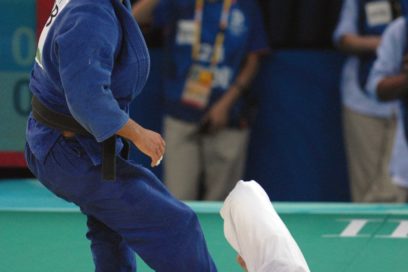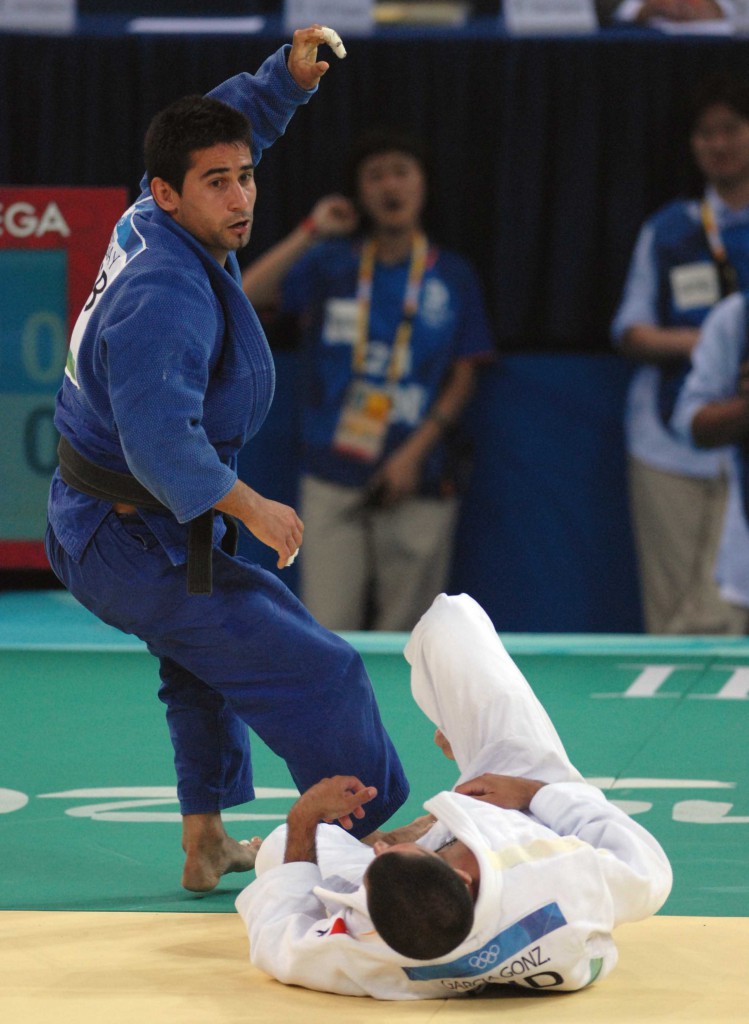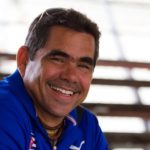In the celebration of the Great Prix in Havana, the relatives of the Cuban young judoka said good bye to one of the greatest representatives, either in quantity of world and Olympic medals spectacularly won in the tatami.
Yordanis Arencibia, originally from the Cuban province Las Tunas, living in the capital since he joined the youth team speaks quickly and seems to be more nervous than when he won the youth golden medal in 1998, his four medals in the elite category (silver 2007 and bronze 1999, 2001 and 2003) and the two Olympic bronze medals in Athens 2004 and Beijing 2008 just to mention the most outstanding ones in the two decades of ippones.
What do our young judokas lack in 60 and 66 kgs categories to become stars?
Something we should improve is the technical staff. According to the characteristics of judo in the world at present it is necessary to have those resources in search of the top efficiency in technique to mark yuko, wazari or ippon. Nowadays it is hard to win with shido. We can work well the kumis, but if there is no explosive technique and in the appropriate moment, the athlete will never define the combat.
Has the job decreased on the base in this aspect?
The job on the base works, but something is happening because the kids are coming with technical deficiencies to the national team. Then we lose time correcting, instead of giving them training charges looking for results. Another of the problems is that we should find more tactics and aggressiveness.
Changes in the regulations force more the technical and spectacular judo than that of holdings and physical fight to the opponent. Which one do you prefer?
This is the one I like and I wish these changes were during my time. I prefer this judo because I mastered hip, legs and shoulder techniques. If I could support by fight on these changes it would have been easier to win today. While fighting I devoted long time to holdings of the legs (penalized with disqualification now) and that made less to the technical part. Today, having a technical arsenal, the best judokas go ahead.
Did you have any judoka paradigm?
Yes, I watched the videos of the Japanese Toshihiko Koga, Olympic and world champion. He was my idol.I copied his sode-tsuri that I used to do and people like it a lot, although with my style.
How is your life as manager with new kids?
They have assimilated and received all very well. I support them either spiritually or technically. I always tell them they never lose the warlike spirit of the Cubans; because it will help us win; go ahead in the zero hour of a combat. I also learn from other managers.
Is there anyone in the team that is like you?
There is a very young kid, Harold (55 kg), he is really short, but he does a lot of techniques and he has a good nose to hold the arms.
Is there anything left you should do? Is there something nagging you?
Beside the Olympic gold I wanted to keep on competing, perhaps one year more before I retire, to see if I could manage to win two or three more medals in 73 kilograms, but I could just do it in some competitions.
Which award from your sports career would you keep?
I will stay with my first Olympic medal, In Athens. It was not the one I was looking for because I was trained to win the golden medal, but the fact to get into the Olympic world is the greatest thing that could happen to an athlete and I could do it there. Another medal I would like to keep is that of the golden won in the youth world competition because I suffered and cried a lot to it in the trainings.
Rivalry and friendship: Is that possible in judo?
I had a lot of difficult adversaries, but I have good relations with them all, and I go alone well with them. Here in Cuba I had one when I started, Manolo Poulot.
We battled, fought, bled and cried together, but that was what gave us the possibility to win medals. He retired first for his injuries. We were always rival in the mat, but outside we were friends and brothers.
Would you like to send a message to your managers?
I would like to send greeting to Indio, my first manager, also in Amancio Rodriguez locality in Las Tunas to Armando Rodriguez and in the EIDE (Sports school) to Manuel Pando Reyes.
They were the engines that drove me to get into the special school ESPA and later to the national team where I was with Justo Noda for 14 years. I was scolded but I was very happy.
Acerca del autor
Máster en Ciencias de la Comunicación. Director del Periódico Trabajadores desde el 1 de julio del 2024. Editor-jefe de la Redacción Deportiva desde 2007. Ha participado en coberturas periodísticas de Juegos Centroamericanos y del Caribe, Juegos Panamericanos, Juegos Olímpicos, Copa Intercontinental de Béisbol, Clásico Mundial de Béisbol, Campeonatos Mundiales de Judo, entre otras. Profesor del Instituto Internacional de Periodismo José Martí, en La Habana, Cuba.




